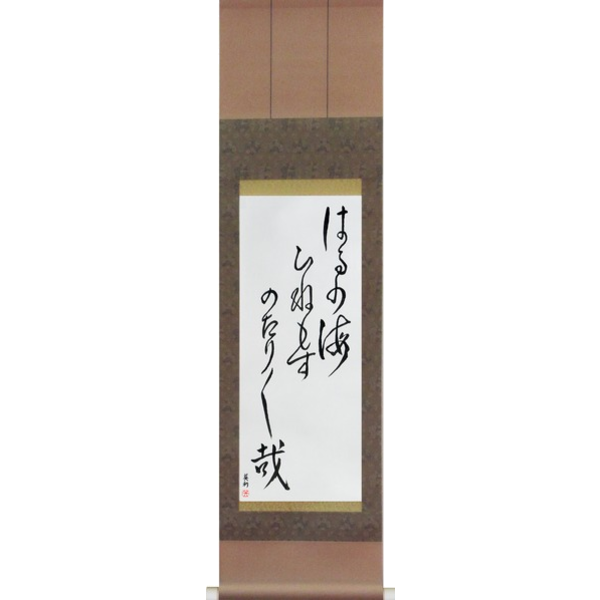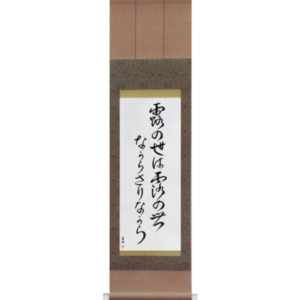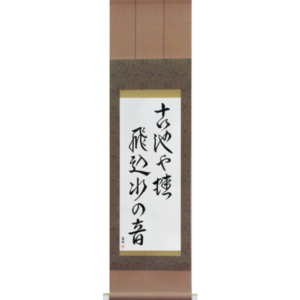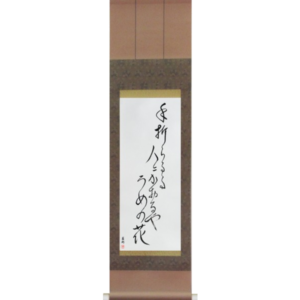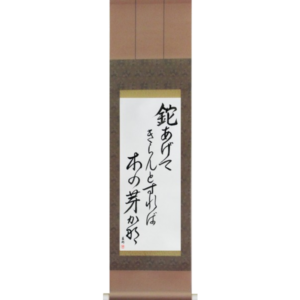H3016 – Haiku by Buson – The spring sea …
by Master Japanese Calligrapher Eri Takase
The spring sea
all day ebb and flow
ebb and flow [1]
|
haru no umi hinemosu notari notari kana |
春の海 終日のたり のたり哉 |
| buson | 蕪村 |
Daniel C. Buchanan suggests the translation:
The sea at springtime.
All day it rises and falls,
Yes, rises and falls. [2]
Daniel C. Buchanan writes:
The sea at spring, though generally undisturbed by storms, nonetheless moves continuously. So, too, in the life of a person or nation there are always ups and downs and a certain amount of monotony. [2]
Asataro Miyamori suggests the translation:
Behold! the spring sea undulates
And undulates the whole day long. [3]
Miyamori writes:
A delightful picture of the halcyon spring sea rises to the mind’s eye at once. As far as the eye can travel, the ocean swells and sinks gently and regularly all day long. This original description of the peaceful spring sea, making use of an onomatopoeic adverb notari-notari, is highly successful. The chief merit of this verse consists in the extremely please rhythm of notari-notari which cannot adequately be represented in English. [3]
Mason and Caiger suggests the translation:
The spring sea –
All day long it rose and fell,
Rose and fell. [4]
Haruo Shinane suggets the translation:
The spring sea-
all day long the waves
rising and falling, rising and falling [5]
Haruo Shinane writes:
The “spring sea” (haru no umi) suggests a relatively calm, open surface. The light waves gently rise and fall, either out at sea or against the shore. The onomatopoeic phrase notari notari suggests a gentle swelling and subsiding, whereas the phrase hinemosu (all day long) implies a sense of time stretching out forever. [5]
Henderson suggests the translation:
The springtime sea:
all day long up-and-down,
up-and-down gently. [6]
Henderson writes:
This translation is an attempt to keep some of the rhythm of the original, but there is something about the sound of hinemosu notari notari kana that makes one want to go on repeating it until one is almost drugged. [6]
Translation Notes:
This haiku by Buson consists of the words 春 (read haru) meaning “spring”, 海 (read umi) meaning “sea; ocean”, 終日 (read hinemosu) meaning “all day long; the whole day”, and のたりのたり (read notarinotari) meaning “undulating; rolling slowly; gently swelling”. Also notice that the final 哉 (read kana) is often written in either hiragana or kanji and this does not change the meaning.
References:
[1] Translation by Timothy L. Jackowski, Takase Studios, LLC.
[2] 23.
[3] 460.
[4] 238.
[6] 97.
